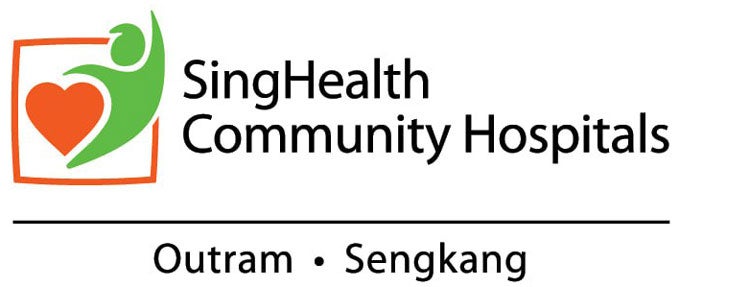SingHealth Community Hospitals will NEVER ask you to transfer money over a call. If in doubt, call the 24/7 ScamShield helpline at 1799, or visit the ScamShield website at www.scamshield.gov.sg.
Putting Words in Your Mouth
- Shaping Hearts, Shaping Minds
- Bringing People Together
- Not for the Faint of Heart
- It Takes A Village
- A Touch of Tech
- Caring to the End
- A Real Page Turner
- An Inspirational Mom
- A Tale of Two Patients
- Glory Glory Family Physicians!
- Retreat Into the Wellness Room
- Caring From the Heart
- A Taste From The Past
- You Got Married In A Hospital?
- SCH World Family Doctors' Day 2022
- Pharmacist With a Passion
- A Spark of Innovation
- You’ve Got a Friend in Me
- Etching Memories

More than just the speech
Communication comes naturally to most of us, but for some it may be otherwise. Many patients can face speech or language difficulties after suffering a stroke or undergoing surgery. This is where our SCH Speech Therapists come in, as they help our patients improve or regain their ability to communicate.
Wanxin had wanted to help children with speech and language difficulties, so that they too, would be able to communicate their ideas and intent with their peers and loved ones. But she found herself drawn to working with adults, when she realised that Speech Therapy also encompasses other acquired communication and swallowing disorders.
How speech therapy helps
Speech Therapists in SCH help our patients improve on their language, speech, cognitive-communication difficulties, so that they can better meet their communication demands for socialisation, work or other roles.
Speech Therapists also help patients with swallowing difficulties, and work closely with the multidisciplinary team to ensure that patients can enjoy food and drinks safely, and maintain good nutrition and hydration during their recovery journey in SCH.
"Seeing patients being able to communicate with their loved ones, whether it is through words, gestures, drawing or pointing, and seeing them enjoy food again without having a tube in their nose, is always a heartwarming feeling. I find it fulfilling to be able to help patients have a better quality of life despite their conditions."
Speech Therapy activities with patients can range from role-playing food ordering from a restaurant, or serving them an array of food and drink items (like a mini buffet!) to practicing their swallowing on different food items. Every work day is never boring, for both the speech therapists and their patients!
Keeping it fresh
Aside from her patients, Wanxin also works closely with family members, helping them ease into the role of caring for their loved ones who may now have communication and swallowing difficulties.
Having worked as a speech therapist for over 10 years, Wanxin has seen her fair share of patients. There have been challenging moments, especially working with patients who are new to speech and language difficulties, such as those who have just suffered a stroke or had undergone brain surgery.
Despite the challenges, Wanxin relishes in coming up with new and creative ways to keep her patients interested and motivated in their therapy. "No two patients are alike," she says, and this means her team must keep their creative juices flowing in tailoring what they do to suit the needs of each patient – and they definitely try to keep it fun!
Knowing what matters
It can be frustrating, Wanxin admits, as patients can get disheartened when they are unable to get their message across despite trying, and may feel that there is a lack of progress in their therapy. For these patients, Wanxin and her fellow speech therapists work closely with the patient and their loved ones to identify meaningful achievable goals, and create positive therapeutic environments to pace the patient, encouraging them to take small steps at a time.
One such stroke patient, Mr Lee*, had a simple goal in mind – to be able to say "I love you" to his wife. Despite struggling with severe expressive issues due to aphasia (language impairment) and apraxia (motor speech disorder), he persevered in his therapy sessions – his first attempt to be able to say "I love you" to his wife was a heartwarming moment, and there was definitely not a dry eye in the room!
*not his real name
Keep Healthy With
@2025 SingHealth Group. All Rights Reserved.
















